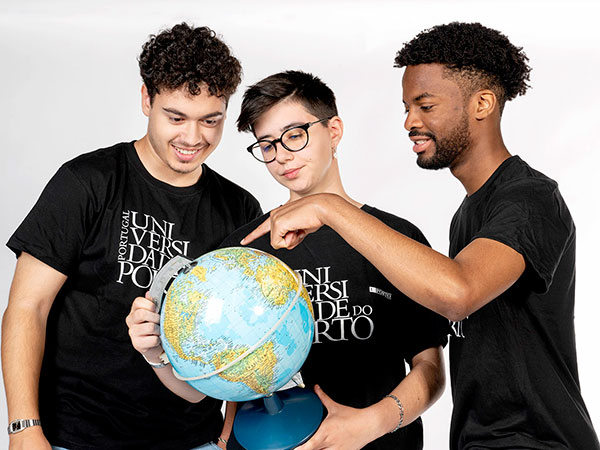The University of Porto continues to consolidate its position as an international reference institution under the Erasmus+ Program, with the approval of 25 more projects in 2023. These results include the coordination of 7 of these projects, reinforcing its commitment to academic excellence and international cooperation. Of the projects already approved, the overall budget is around 10 million EUR, and U.Porto is responsible for managing more than 5 million EUR.
In all, 76 applications were submitted in the 2023 call for proposals, demonstrating the commitment of the University of Porto's academic community to active participation in Education and Training projects. It should also be noted that some results are not yet known, which could further increase the positive impact of the U.Porto on the international academic scene.
Among the projects already approved, and which will be led by U.Porto, are several projects under Key Action 1, aimed at promoting individual mobility for student and staff learning purposes. This year's highlight is the international credit mobility project MIND - Move for Inclusion and Digitalization, the first Erasmus International Credit Mobility consortium coordinated by U.Porto. Bringing together other Portuguese universities (University of Minho, University of Trás-os-Montes and Alto Douro and University of Aveiro), this consortium will make it possible to strengthen the offer of extra-EU mobility opportunities. In total, the ICM projects coordinated by U.Porto will make it possible to carry out more than 200 mobilities with 28 countries, from 8 regions, on 4 continents, with a budget of around 700 thousand EUR.
This year there are also two projects under Key Action 2, aimed at cooperation between institutions. The TecBioFood Project, a Higher Education Training Project coordinated by FCNAUP, was designed to provide São Tomé and Príncipe's Higher Education Institutions with the necessary skills to improve technical and teaching conditions in the area of Nutrition and Food Sciences, through the use of their biological resources. Another of the approved projects, coordinated by the U.Porto and under the leadership of the FBAUP, is the SmartAgeCare Project, a Partnerships for Cooperation Action Project, which aims to help position the European Union as a global leader in the area of healthy ageing, boosting the Smart Ageing paradigm. Developed by a consortium of 9 partners in 8 European countries, the project combines multidisciplinary expertise and experience in digital transition in health and citizenship.
We recall that between 2014 and 2020, U.Porto actively participated in 223 Erasmus Projects, 41 of which were coordinated by the institution itself. These projects represented a total investment of 53 million EUR, highlighting the relevance and scope of the international activities developed by the university.
U.Porto Strategic Goals 2030: A boost for internationalization
U.Porto's participation in Erasmus+ projects in 2023 is part of the University's Strategic Goals for 2030. The institution has set itself the goal of cumulative participation in 121 international Education and Training projects by 2024, raising this target to 350 by the end of the decade (2030).
These goals reflect U.Porto's commitment to strengthening its global presence, promoting international cooperation and mobility, scientific collaborations and enriching the educational experience of its students. The University aims not only to be recognized for its academic rigor, but also for its significant contribution to international development in terms of teaching and research.
The University of Porto thus reaffirms its leading role in terms of academic internationalization, contributing, through active participation in projects of international importance, such as the Erasmus Programme, to the advancement of knowledge and collaboration between higher education institutions around the world.
